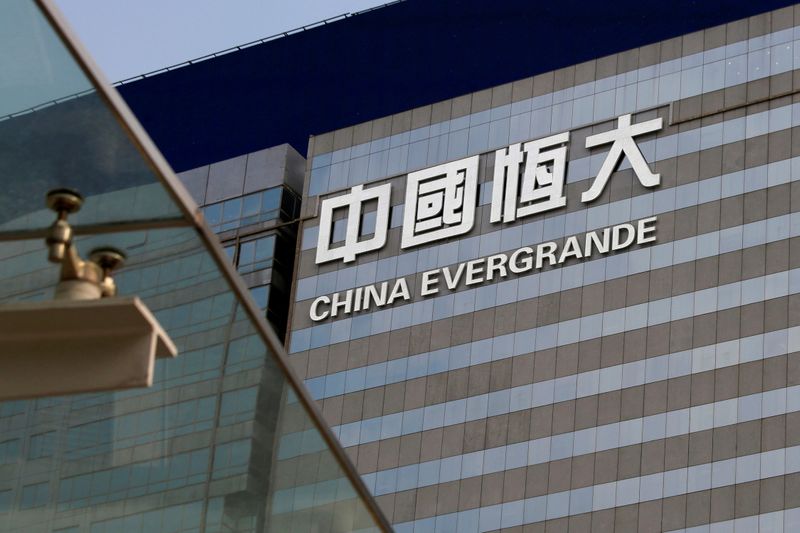This post was originally published on this site
https://i-invdn-com.akamaized.net/trkd-images/LYNXMPEG9S229_L.jpg
HONG KONG/BEIJING (Reuters) – China Evergrande Group (HK:3333) has taken to seeking loans at above-average interest rates in the shadow banking market, where caution even there over its cash flow hints at an increasingly fraught effort to reduce the property sector’s biggest debt.
The developer, which owed 835.5 billion yuan ($125 billion) at June-end, has been shopping around for cash among small banks and private trusts at high rates to fund developments, as proposed limits to the permitted size of real estate debt stymie big-bank lending.
At the same time, China’s second-biggest developer by sales, after Country Garden Holdings Co Ltd (HK:2007), has had to quell concern about its cash flow after a document – which it called fake – showed it had sought government support.
Its situation is the culmination of a decade of developers binging on cheap debt, fuelling a property boom. The firm owns China’s largest land bank at 240 million square meters (59,305 acres) – equivalent to the size of the Cook Islands – yet is the most indebted developer in the country’s most leveraged sector.
With the government now trying to slow property price rises and tightening mortgage availability – to restrain household debt in a pandemic-hit economy – the health of large, heavily indebted developers has come under increased scrutiny.
“The main problem with Evergrande is over-expansion and over-banking from too many different institutions,” said a risk control official at a major state-owned bank, who was not authorised to speak to media and so declined to be identified.
In the past few months, Evergrande has offered to issue debt with annual interest of over 15% privately to at least one onshore and two offshore trust companies, said employees at those companies, who were also not allowed to speak with media.
Trust companies pool money from wealthy individuals and firms to extend loans, and are part of China and Hong Kong’s informal, unregulated and opaque shadow banking system.
The rates were higher than Hong Kong’s low-teen average, where Evergrande offered debt last year, the employees said.
Of the three trust companies, one offshore one previously lent money to Evergrande. This time, none did due to concern about the developer’s high debt level, the employees said.
Shenzhen-based Evergrande did not respond to a request for comment.
Onshore, Evergrande has so far this year offered retail trust products at rates of 6.6% to 9%, little changed from the same period last year, showed Reuters calculations based on data from Usetrust.com, which tracks the majority of trust products.
That compared with developers’ average fundraising cost of 7.9%, down from 8.3% from a year earlier, the data showed, as base rates fall due to government policies aimed at easing the business impact of the COVID-19 pandemic.
DELEVERAGE DELAY
Lenders and analysts have said the risk of default or operational impact is relatively small for Evergrande given its multiple funding channels and vast land bank. However, higher borrowing costs could hit profit and delay deleveraging.
The firm in March pledged to cut 150 billion yuan in debt annually over three years. Still, its trust loans surged in the first half, with short-term debt rising 6% to 396 billion yuan, according to S&P Global Ratings. The credit-rating firm last month downgraded its outlook for Evergrande to negative.
In one retail product issued via AVIC Trust this month to raise up to 1.2 billion yuan for a residential project, Evergrande offered annual interest of 8.5% for 2 years. In comparison, smaller peer Seazen Holdings Co Ltd (SS:601155) offered 7.5%.
Evergrande is also paying higher rates in the onshore bond market. Last week, it sold 2 billion yuan worth of corporate bonds with a 5.8% coupon. While the rate was the same as its September issuance, it was higher than the benchmark 4.02%.
“The only way out is to speed up property sales and get as much pay-back to ease the liquidity crunch,” said a project manager at Shanghai Trust Co. “Otherwise an expected jump in fundraising costs will only delay debt reduction efforts.”


